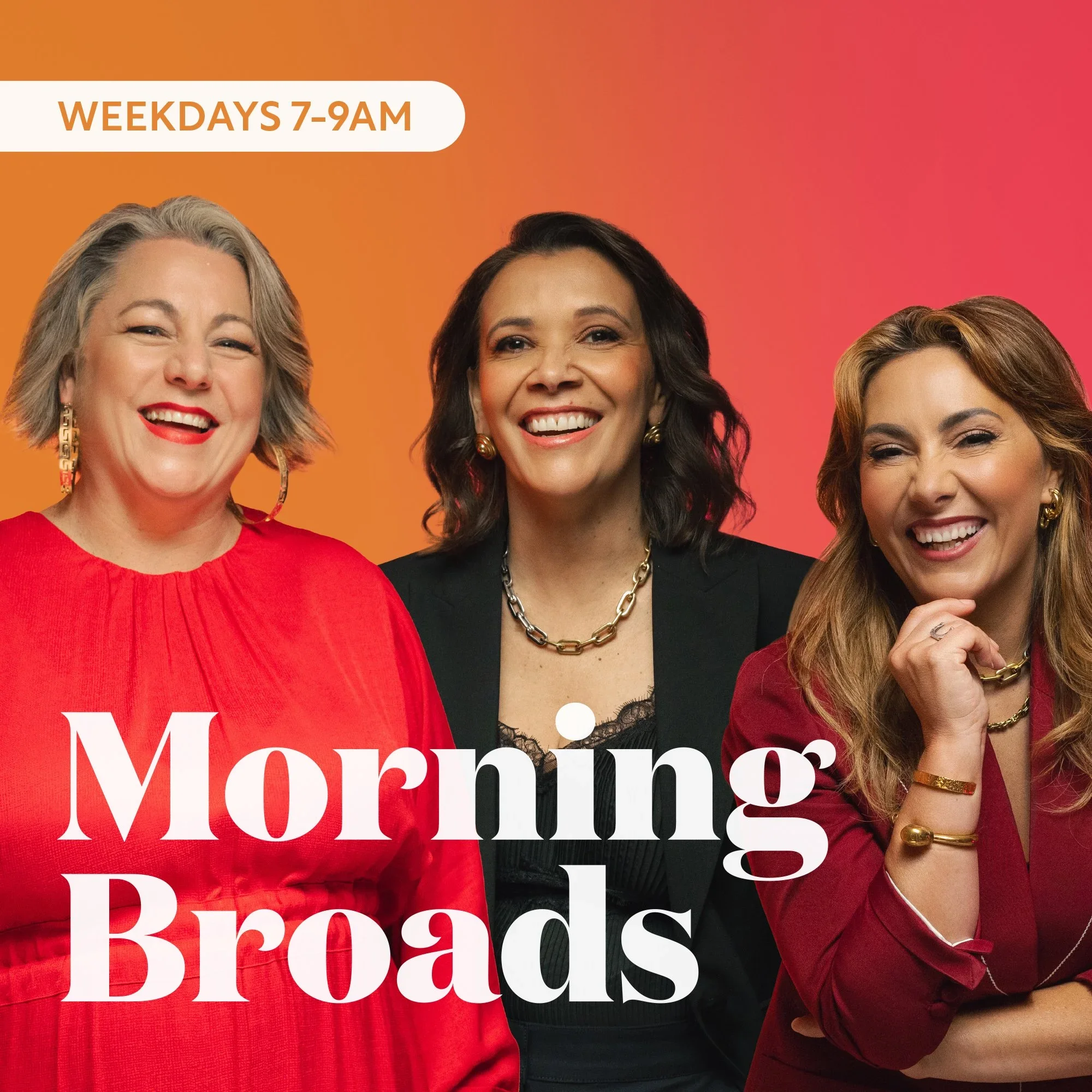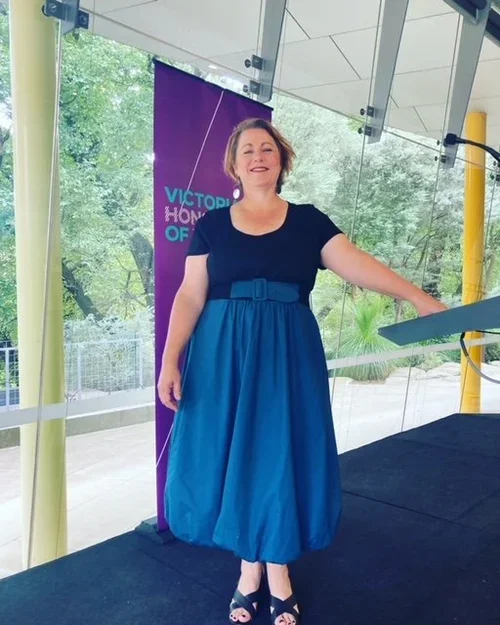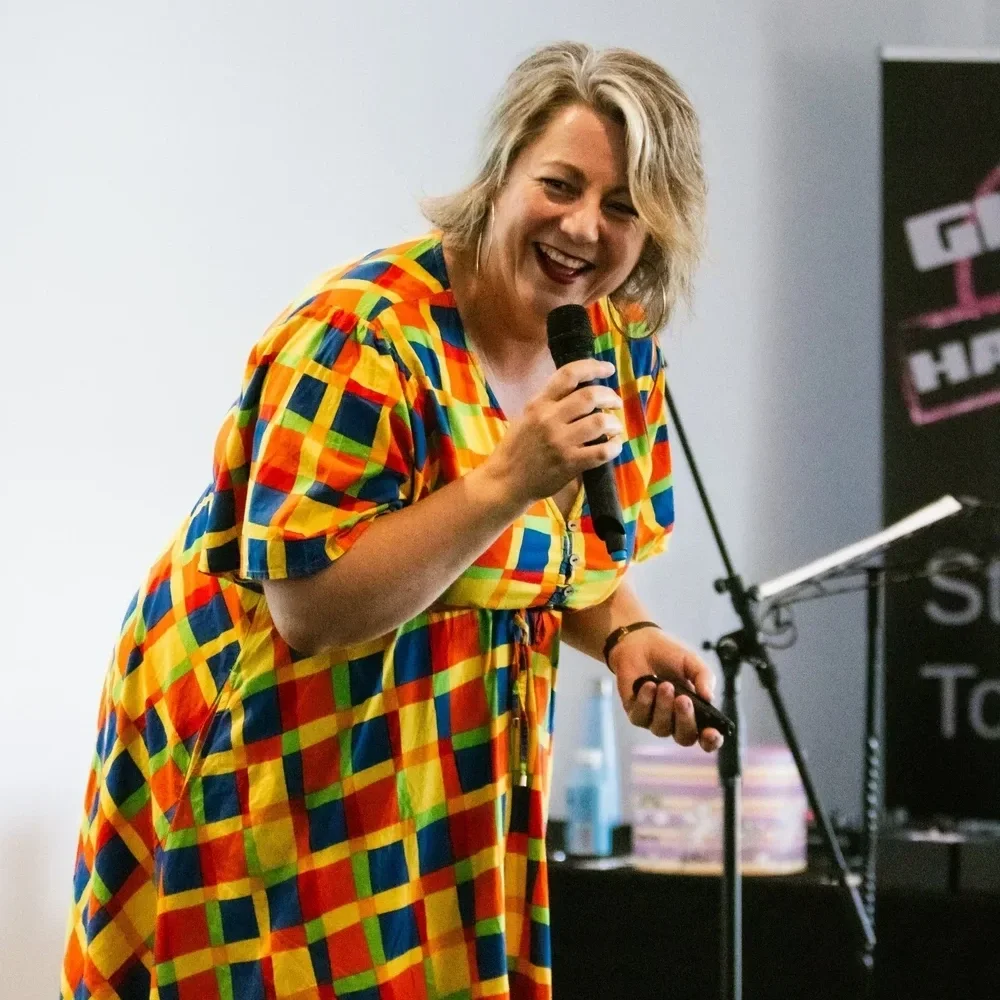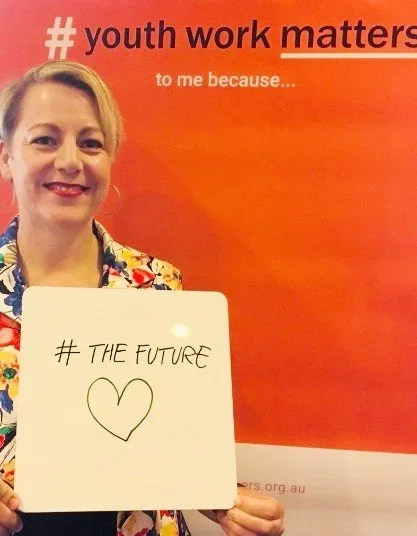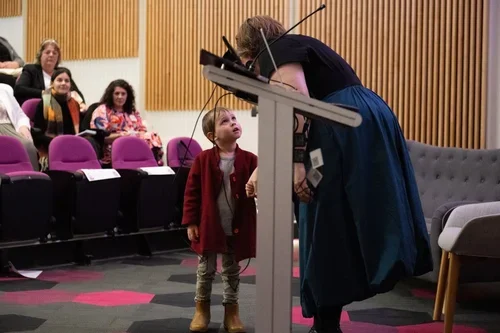Fostering Connection through Curiosity
Nelly Thomas moves more in the dappled light than shade. She invites people to step into the sunlit spaces where there is opportunity to hear stories and share stories. Nelly advocates for people through her work, often the underdog. She communicates complex and difficult ideas in ways that people can better understand. Through comedy, MCing, writing and radio, Nelly said that she is able to act as a type of translator, relaying information in ways that people can relate to. While humour isn’t always the tool, it sure helps and Nelly loves to weave comedy throughout her work and life.
Among other things, Nelly has written three children’s books, each encouraging children to be themselves, in their own unique way. Some Brains, celebrates neurodiversity. In Nelly’s own words:
“It starts from the premise that neurodiversity (conditions like Autism, ADHD, Dyslexia and the like) is a normal, essential part of human biodiversity - without it we don't get Picasso, Einstein or Greta Thunberg! Yes, neurodiversity kids sometimes require a bit of extra help and patience, but they should never be viewed as disordered. Some Brains encourages us all look for our strengths and to understand that brains are like fingerprints - uniquely, wonderfully ours.”
Nelly will be a keynote speaker at the Playgroup Victoria Conference in March, 2026. Ahead of the event, we spoke with Nelly, learning more about her interests, her ideas and her lived experience:
What inspires you in life and work? What motivates you?
I am inspired by people who feel the weight of the world, but get on with it anyway. Hope is not an easy thing to hold onto – those who do manage to fight for it, are my people. Working with young people helps in this respect but even then, it’s an active practice to live and work with hope. I often make things I – or people I love – need. If not me, then who?
What do you love most about working with people?
I genuinely love people and always have. I am curious by nature and I find how people exist in the world, how they think and who they are endlessly fascinating.
You meet so many different people from different walks of life. In what ways can we bring out the best in one another and our communities?
“It’s a cliché but the best tool in our connection toolkit is curiosity. If you are curious about people you almost always come around to seeing why they are the way they are rather than judging them. This fosters connection. Don’t get me wrong – sometimes you need to “throw an elbow”, but most of the time curiosity is best.”
The upcoming Playgroup Victoria conference is all about collaboration and cultivating connections. What meaningful work stems from collaboration? What benefits extend to us all when we nurture connections with others?
Nothing but good things come from connection. Collaboration can be hard – we all remember being the kid at school in group work – but we also know it yields better results. No one knows everything and everyone needs a sounding board at the very least. Good will produces more good will.
At Playgroup Victoria, the organisation believes in the philosophy that it takes a village to raise a child. There is a great belief in the power of shared experiences and learning through play. What benefit have you found in these key parts of life?
“I think the village is the ideal that many of us have lost. We must work hard to get it back. So many parents – mothers in particular – are parenting and caring alone and/or with intermittent and inconsistent support. I am not against diagnosing mental health and other conditions – labels can help us understand challenges and support needs – but we must also recognize that oftentimes, we are individualizing and pathologizing social problems. There is not a mother on earth who thrives when she’s left alone with a small child or children for days on end and yet, we do this routinely.”
In what ways can we feel a sense of belonging and help others too?
I think people wait to feel like they belong. It looks like belonging, connection, hope, love – all the good stuff – just come to some people naturally. That’s not true. All good things require risk (vulnerability) and work (you need to make connections happen and work on them). Having said that, if you can “bring someone in”, why wouldn’t you? It’s up to them to take that opportunity, but it costs you nothing to try.
Why are local community connections important for our health and wellbeing?
We are pack animals. We overcomplicate wellbeing – the truth is it’s pretty simple. We all know what we need to do less of (smoke, drink, junk food, stress) and more of (move, sleep, rest, connect) but we don’t always want to so we pretend it’s hard. People need each other but need is vulnerable. You don’t need to see the reams and reams of research on connection to know a common sense truth – feeling connected to others is good for you. Watch a dog that has lost its pack, it flounders and eventually becomes aggressive.
“We don’t need a huge Instagram following, but we do need some people we love and who love us.”
What words come to mind when you think of ‘play’?
Joy and freedom. One of the things I am consciously trying to do since I turned 50 in recent years is find my way back to play/ joy. Doing things that serve no purpose other than to make me happy.
What makes you feel most playful?
Drag! I started doing drag – yes, like a drag queen – a few years ago and it’s so very different from any kind of performing I have done before. It’s character work so it allows a camp, playful and naughty side of me to emerge that’s nothing to do with being a “professional woman” or “mum”. I love it.
In what ways do you like to be playful with your kids?
We joke, we laugh, we watch YouTube fails and we all LOVE a special occasion – Halloween decorations are up in September and Christmas decorations in November. We max out joy and don’t care about other people’s rules.
In your experience, what environments support children to be themselves and express themselves?
Environments where adults cede control. We must guide kids but we stifle their joy, self-esteem and growth if we try to control them. If you’re trying to control what a kid does, wears, says ask yourself why and if there’s no good reason – back off.
Your children have grown from young tackers but what do you remember of the early days? What would you say to parents and carers who are in the thick of the early days with babies and toddlers?
I remember them being very hard and I distinctly remember thinking, ‘Where is this village everyone talks about?’ I tell them: it’s not you, we are all living wrong. Those early years require a village and if you don’t have it, of course it’s hard! I say do your best.
What have your children taught you about yourself?
“They have taught me that my capacity to love is limitless. My first daughter cracked my chest right open and I was worried I wouldn’t love like that again. I did – the space expanded.”
When you encounter mothers, parents and carers in the early years, what encouragement would you offer them? What have you learnt since your children were little?
I remind them not to overcomplicate it – love them and look after them. The rest is detail. I also firmly believe that the health of the mother determines the health of the whole family – I tell dads and other partners to ensure the birth mother is priority number one.
You have two children with invisible illnesses. How has your family adjusted, when the outside world can sometimes be insensitive or unknowing?
At first I shouted into the wind and tried to get people to see, understand and even fix… Now I am more selective about who to go to and for what. And I have become very good at saying no.
So many people have invisible illnesses that make everyday life hard, especially when illnesses cause people to avoid certain events that may be too exhausting or expose them to a heightened risk of infection. What have you learnt about supporting those experiencing these challenges?
“It’s pretty simple: ask them what they need and if you can, try to meet that need. For example, I have an autistic kid. When we have a party or social gathering at home, we always have a designated “quiet room” – it is labelled, and the rule is no noise. This is a safe space for anyone who feels overwhelmed. I also tell people clearly the start and finish times of the event to manage my other daughter’s energy and limits. Not all needs can be met, but even trying is a bloody good start.”
In what ways can we create spaces for people of all abilities? In what ways can we make people of all abilities feel welcome?
Start with ensuring everyone can get in the building. Literally. And ask your participants for their access needs – invite that discussion. Don’t make the deaf person come to and ask for an interpreter, ask everyone coming what they need.
You have three children’s books, which are definitely for adults too- Some Girls, Some Boys and Some Brains: a book celebrating neurodiversity. What was your endeavour when you put pen to paper? What did you hope these books brought to the world?
These are all examples of stuff my family needed that I could not find. I wrote Some Girls for my daughter when she was getting bullied for “looking like a boy” and the others followed.
In 2022 Some Brains was nominated for the international outstanding books on disability and was included in the Premiers Reading Challenge in 2024. What has this recognition and support meant to you?
That book is the great joy of my career. I have never had such uniformly positive feedback about anything I have ever done. My only aim was to write a book for my kid that showed her and kids like her that they were perfect as they are. What flowed has been life changing for me and many readers. I am not a spiritual person, but that book really did “fall out of me” in a divine kind of way.
Your podcast The Single Life of Us appears in Apple and Spotify’s Top 20 podcasts in Australia, with more than 1,000,000 downloads. What followed was Dear Nelly - sex, relationships and dating on the other side of 40. What has this experience been like? What was your hope and in what ways did you endeavour to connect with people?
Again, I needed something, couldn’t find it and created it! I found myself single in my 40’s and completely lost. I assumed there must people other people in that situation and so I created a space to talk about it. Using humour and heart.
What do you think is the best way to make people feel comfortable when talking about tricky subjects?
“Name it to tame it. It’s the same with kids – name the feeling and the feeling has a chance of shifting. If you pretend talking about a hard subject is easy, everyone gets tense. If you name the feeling in the room, it allows people to breath out. The worst thing we can do in heightened situations is pretend they’re not happening.”
So much of what you do is vulnerable, honest, genuine. Why does breaking through that mask and showing authenticity important for real connection?
I honestly don’t know any other way these days. I grew up in household and time where putting on a false show were kind of mandatory. I refused to do that from my late teens because it was suffocating me. Now I am open and honest. I am very respectful other people’s privacy and stories, but if it’s my own I am open – that allows others to be too. Nothing good happens in the shadows.
Hear more from Nelly at the Playgroup Victoria Conference
Connect with Nelly via her website
Article by Sinead Halliday


